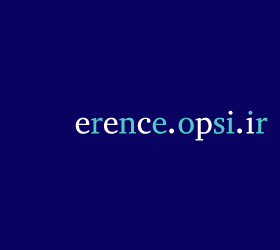Association Mission
The mission of the association is to advance the creation, communication and application of knowledge to benefit society and improve people's lives.
Membership
Contact Us
year 27, Issue 1 (Iranian Nano-Photonic Conference 2020 2020)
ICOP & ICPET _ INPC _ ICOFS 2020, 27(1): 121-123 |
Back to browse issues page
Download citation:
BibTeX | RIS | EndNote | Medlars | ProCite | Reference Manager | RefWorks
Send citation to:



BibTeX | RIS | EndNote | Medlars | ProCite | Reference Manager | RefWorks
Send citation to:
Jafari A, Ranjkesh A, Golshan Bafghi Z, manavizadeh N. Efficiency improvement of the Si solar cell with TiO2 as anti-reflective coating and Ag nanoparticles. ICOP & ICPET _ INPC _ ICOFS 2020; 27 (1) :121-123
URL: http://opsi.ir/article-1-2273-en.html
URL: http://opsi.ir/article-1-2273-en.html
1- Electronic Materials Laboratory, Electrical Engineering Department, K. N. Toosi University of Technology, Tehran, Iran
2- Nanostructures Lab, Electrical Engineering Department, K. N. Toosi University of Technology, Tehran, Iran
2- Nanostructures Lab, Electrical Engineering Department, K. N. Toosi University of Technology, Tehran, Iran
Abstract: (2201 Views)
Efficiency improvement and subtraction the final cost of Silicon solar cells has greatly increased their use as commercial cells. Anti-reflective coating (ARC) as well as plasmonic metal nanoparticles are as the most common ways to improve the efficiency and reduce the costs. In this paper, simulation with Silvaco, with TiO2 as ARC and Ag as NPs, the efficiency of the solar cell has improved from 10.42 % in bare solar cell, 18.75 % in cells with ARC, to 25.36 % in cells with ARC and Ag nanoparticles. These structures can be used to commercialize efficient silicon solar cells.
| Rights and permissions | |
 |
This work is licensed under a Creative Commons Attribution-NonCommercial 4.0 International License. |









